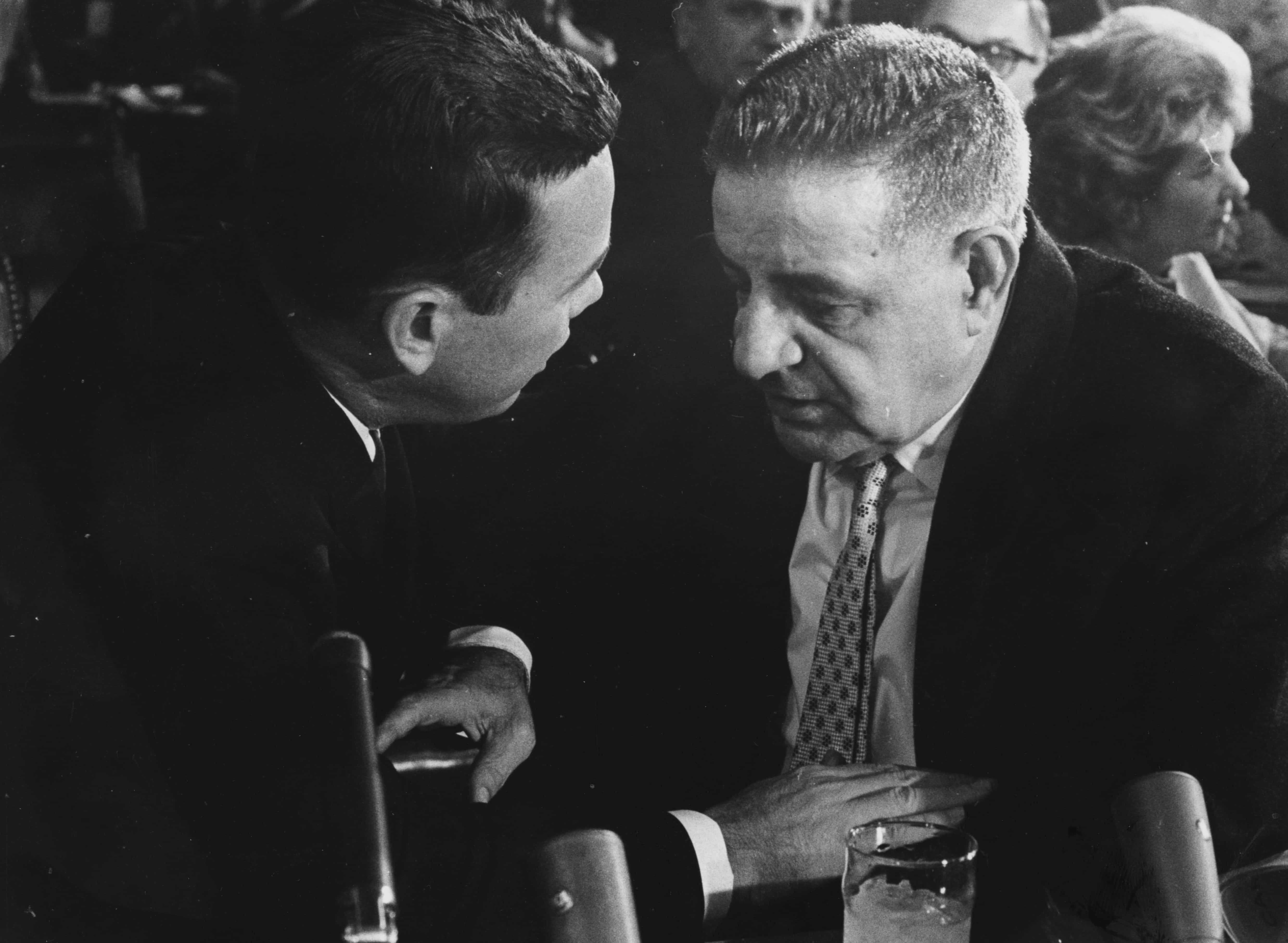'Empires of New York' Episode 1 & 2: How Rudy Giuliani broke the back of NY's five dominant crime families

In the late seventies, New York symbolized everything that had gone wrong in America as it was mired in deep economic decline. Crime was on the rise, the city was bankrupt, corrupt, and dirty; but five juggernauts – Donald Trump, Ivan Boesky, Leona Helmsley, John Gotti and Rudy Giuliani – turned the ensuing chaos into opportunity and began their quest for power and fame with an aggressiveness the world had never seen.
By 1983, the Big Apple was back in action. Wall Street was on the uptick as the grit, greed and glory of the times fueled the meteoric ascent of the five would-be titans. CNBC's 'Empires of New York' chronicles their roller-coaster journeys in six eyebrow-raising episodes.

During the economic boom of the 80s, a new generation of young, urban professionals – called the 'yuppies' – painted the town red with only one thing in their mind – making more money. These were driven, unapologetic, and mostly self-serving individuals who seized on every opportunity to crack into that six-figure salary. "New York had transformed into a playground built on money," Narrator Paul Giamatti notes in 'Empires of New York'.
But aside from well-dressed Wall Street-ers, another enormous industry hummed along in the shadows – sucking in cash from almost every corner of the city.
The Commission
The Italian mob or the Cosa Nostra took a cut from several businesses and were big on vending machines and construction. Furthermore, garment, automobile, jewelry, real estate, and restaurant businesses also gave transfusions to cash to the mafia -- oftentimes to cut through bureaucratic red tape and costly delays. "Back in the 80s, if you were a New Yorker, you understood that the mob was a very powerful force in the life of New York City," Former Asst. U.S. Attorney Michael Chertoff told producers. "Essentially, it was almost as if the mafia was a separate government that could tax the citizens of New York for almost everything they bought."
The mob got rich with the building boom and increased their power and influence exponentially via racketeering, gambling, loan sharking, etc. This eventually led to the formation of the notorious five families – Bonanno, Colombo, Gambino, Genovese and Lucchese – forming a 'commission' that would rule the tri-state area for years to come.

Until the late seventies, no public official had really gone after the syndicate, and most adopted a rather dispassionate approach when dealing with them. The tools were more than available to prosecute the mob's activities, especially due to a series of developments in the 1960s and 1970s that paved the way for the federal government to pursue mobsters more aggressively and on a larger scale.
In 1963, convicted New York mobster Joseph Valachi broke La Cosa Nostra’s sacred code of silence -- or the 'Omerta' -- to become a government informant, thereby revealing key details about its organization and practices. In the years that followed, Congress passed a law allowing wiretap evidence in court, and later the remarkable Racketeer Influenced and Corrupt Organizations (RICO) Act, which facilitated prosecutions against criminal organizations and the seizure of their assets.
Rudy Giuliani
The future New York mayor, who was a federal prosecutor in the 80s, used the aforementioned tools to mastermind the indictment of eleven top mobsters, including heads of New York's five dominant crime families, known as 'The Commission' – in February 1985.
"Under the RICO umbrella, you could convict a whole family infrastructure of conspiring together as an organized crime family," Former Asst. U.S. Attorney Randy Mastro explained. Chertoff continued: "And so Rudy's idea was: why don't we do that against the commission as if it is a distinct enterprise and conspiracy that we can prosecute under the racketeering law." He added: "It seemed like an audacious and very interesting plan, and I was very excited to work on it."

The case spearheaded by Giuliani and his team relied on bugs planted in a series of strategic locations, including the dashboard of a Jaguar belonging to Lucchese family boss Anthony “Tony Ducks” Corallo. Following a four-year investigation, eight of the original defendants were convicted in November 1986.
The case -- dubbed the Mafia Commission Trial -- marked a major change in the prosecutors' approach to dealing with La Cosa Nostra. Giuliani touted how his team had "crushed" the syndicate by dismantling entire chains of command, instead of hunting down an individual caporegime (boss) or underboss, who could easily be replaced by their subordinate.
After six years as U.S. attorney for the Southern District of New York, Rudolph Giuliani stepped down in 1989. At the time, he was perhaps the most famous law enforcement official in the country. In 1994, Giuliani began his eight-year tenure as the Mayor of New York, enacting sweeping changes to law enforcment policies that resulted in a whopping 50-percent decline in crime and became a model for major cities across the United States. Giuliani was also lauded for calmly shepherding his city through the devastating 9/11 terrorist attacks that pulverized the World Trade Center and shook the nation's roots.
CNBC PRIMETIME's ‘Empires of New York,’ premieres Sunday, November 29th at 8PM ET/PT.










